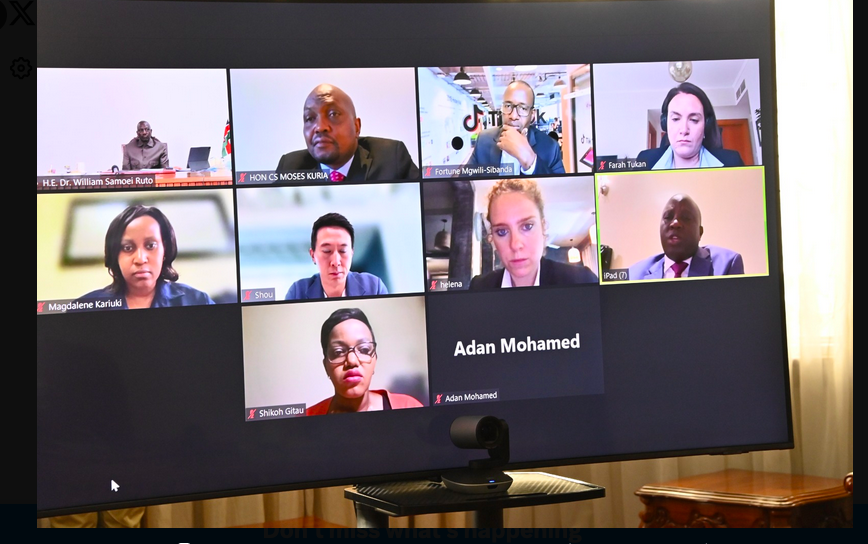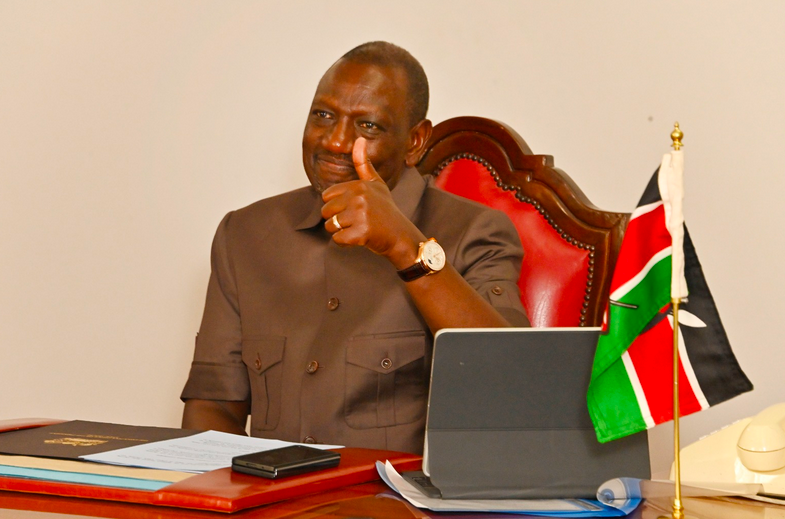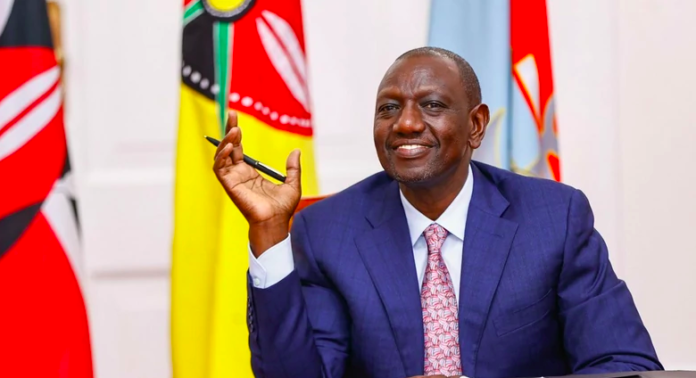By Talk Africa Correspondent
Nairobi, Kenya: TikTok a Chinese based company is set to setup shop in Nairobi, Kenya. This shop is set to help in content moderation and help the expansion of its base in the continent.
This follows a virtual meeting held between Kenya’s President Ruto William and TikTok CEO Shou Zi Chew who agreed to set up a TikTok office in Kenya to coordinate its operations on the continent. it was a timely conversation given the recent debate about banning the platform due to explicit content posted by users. President William Ruto said the move will ensure that content on the platform is moderated to fit community standards.
According to 10 techbal despite existing legal troubles around content moderation in Kenya, the president’s statement about the meeting ignores TikTok’s involvement with one of the key parties called Majorel.

There are many difficulties around content moderation, and earlier this year, former content moderators sued Meta and Majorel for wrongful dismissal. A court ruled that Meta can be held liable for labor rights violations despite the moderators being employed by third-party contractors like Majorel. As the lawsuit gained attention, an internal TikTok document leaked, showing that the company was preparing for investigations into its treatment of outsourced content moderators in Kenya.
The president’s statement about the meeting also says nothing about improving Kenya’s monetization of the platform. When announcing the meeting the day before, President Ruto said he would talk with Mr. Chew about extending monetization channels to Kenyans. Currently, no African country can earn money directly from the platform, only through influencer marketing, affiliate marketing, or the marketing of their goods and services. Ruto said he had previously interacted with social media platforms such as Facebook, YouTube, and Twitter concerning monetization strategies. However, it remains unclear if those conversations influenced the decisions of YouTube and Facebook to enable monetization in Kenya.

While he claims that his talks with YouTube have led to the East African country is one of the only four African countries that gained access to the platform’s monetisation program last year, news reports dating back to 2015 show that Kenya and several other African countries have had access to the YouTube Partner Program (YPP) for nearly a decade. YPP offers creators enhanced access to monetisation features, which are presently accessible to 12 African countries, contrary to President Ruto’s claims that only four countries have access to them.
Kenya is among the four African countries— Nigeria, Ghana, and South Africa— that can monetise content through Facebook’s Ad Breaks feature, allowing video creators to earn revenue from advertisements. However, they gained access to it in 2019—when President Ruto was deputy president to Uhuru Kenyatta. It’s uncertain if he or the Kenyan government influenced the selection of these countries. In the first quarter of the year, Facebook announced the feature was now available to Kenya, the country ranked fourth among African countries for citizens’ social media usage, suggesting that the decision could have been data-driven.
President Ruto wants a similar monetization arrangement between Kenyan content creators. There are direct monetization channels such as Livestream gifts and the Creator fund, but they are not available in any African country. Africans on TikTok currently earn through influencer marketing, affiliate marketing, and possibly advertising their products or services.














